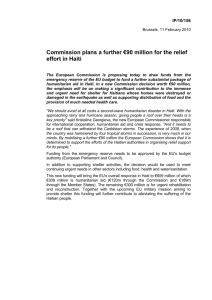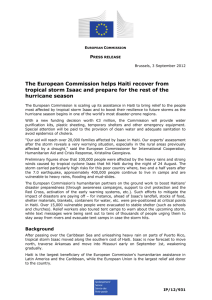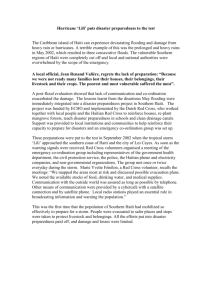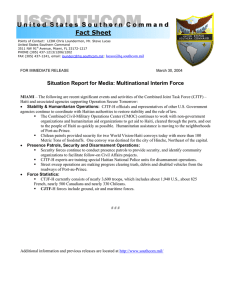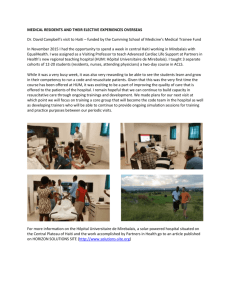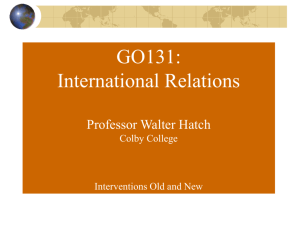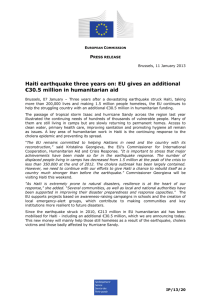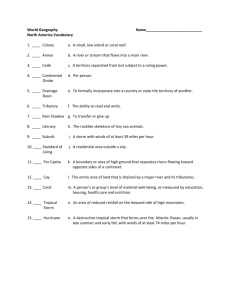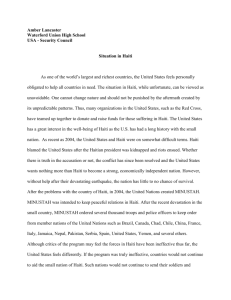united nations
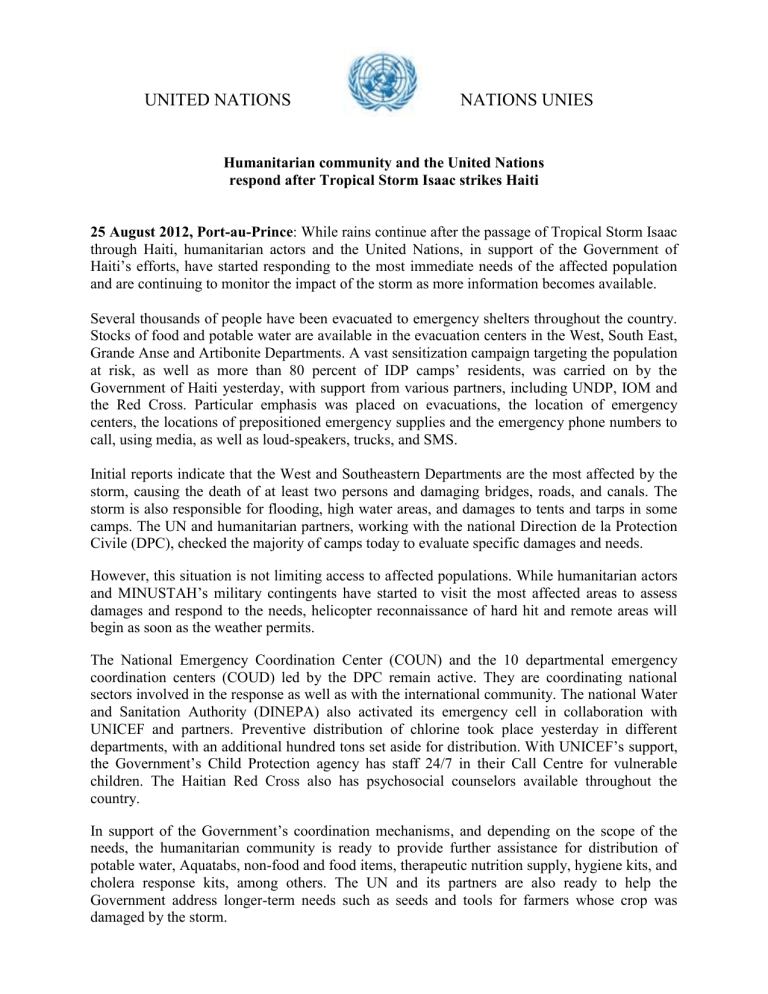
UNITED NATIONS NATIONS UNIES
Humanitarian community and the United Nations respond after Tropical Storm Isaac strikes Haiti
25 August 2012, Port-au-Prince : While rains continue after the passage of Tropical Storm Isaac through Haiti, humanitarian actors and the United Nations, in support of the Government of
Haiti’s efforts, have started responding to the most immediate needs of the affected population and are continuing to monitor the impact of the storm as more information becomes available.
Several thousands of people have been evacuated to emergency shelters throughout the country.
Stocks of food and potable water are available in the evacuation centers in the West, South East,
Grande Anse and Artibonite Departments. A vast sensitization campaign targeting the population at risk, as well as more than 80 percent of IDP camps’ residents, was carried on by the
Government of Haiti yesterday, with support from various partners, including UNDP, IOM and the Red Cross. Particular emphasis was placed on evacuations, the location of emergency centers, the locations of prepositioned emergency supplies and the emergency phone numbers to call, using media, as well as loud-speakers, trucks, and SMS.
Initial reports indicate that the West and Southeastern Departments are the most affected by the storm, causing the death of at least two persons and damaging bridges, roads, and canals. The storm is also responsible for flooding, high water areas, and damages to tents and tarps in some camps. The UN and humanitarian partners, working with the national Direction de la Protection
Civile (DPC), checked the majority of camps today to evaluate specific damages and needs.
However, this situation is not limiting access to affected populations. While humanitarian actors and MINUSTAH’s military contingents have started to visit the most affected areas to assess damages and respond to the needs, helicopter reconnaissance of hard hit and remote areas will begin as soon as the weather permits.
The National Emergency Coordination Center (COUN) and the 10 departmental emergency coordination centers (COUD) led by the DPC remain active. They are coordinating national sectors involved in the response as well as with the international community. The national Water and Sanitation Authority (DINEPA) also activated its emergency cell in collaboration with
UNICEF and partners. Preventive distribution of chlorine took place yesterday in different departments, with an additional hundred tons set aside for distribution. With UNICEF’s support, the Government’s Child Protection agency has staff 24/7 in their Call Centre for vulnerable children. The Haitian Red Cross also has psychosocial counselors available throughout the country.
In support of the Government’s coordination mechanisms, and depending on the scope of the needs, the humanitarian community is ready to provide further assistance for distribution of potable water, Aquatabs, non-food and food items, therapeutic nutrition supply, hygiene kits, and cholera response kits, among others. The UN and its partners are also ready to help the
Government address longer-term needs such as seeds and tools for farmers whose crop was damaged by the storm.
MEDIA CONTACTS:
Eliana Nabaa
Chief, Communication and Public Information
MINUSTAH, Haiti
Tel: +509 3702 8001
Email: nabaa@un.org
George Ngwa Anuongong
Chief, Communication Section
OCHA, Haiti
Tel: +509 3702 5192
Email: ngwaanuongong@un.org
